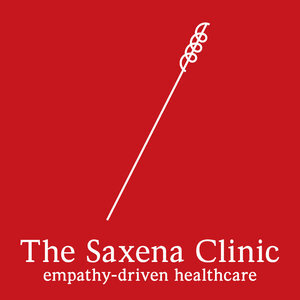The Perfect Heart
Recently I found out that a medical practice where I am a patient has been incorrectly treating me for about four years.* This is a pretty upsetting thing, as you can imagine. Fortunately, it's not serious or life-threatening, but it did impact my quality of life in a really significant way for all those years. Learning about the error cleared up a lot of confusion around why I wasn't feeling well for so long. I've visited a different practice, gotten a more appropriate treatment, and am feeling so, so much better. Better in that way where you suddenly realize how bad you've been feeling, and for how long.
I feel a lot of things--grief over all those years of not feeling 100%, regret over the amount of time I've already spent getting the wrong treatment, disappointment around having decided to be proactive about a symptom I was having and then having no results from all that effort. I even, quite honestly, feel some empathy and forgiveness for the medical practice itself--I understand something of what it takes to run a healthcare practice, and I know human beings make mistakes sometimes.
However, the predominant feeling I'm having is anger--not about the error itself, but about the fact that no one from that practice has reached out with even a semblance of an apology. When, weeks after discovering the error, I wrote to the owner of the practice about the issue, he wrote back a message dismissing my concerns, absolving his practice of any error, and blaming the previous practice owner.
I am not a litigious person. I'm not someone who seeks out conflict. But I'm angry, here. And the kicker is that if one person at that practice had just said, "I'm sorry," I would have just let all of this go. Instead, I'm grinding my teeth in my sleep and writing this rant and venting to my kind and generously-listening husband and friends. And all it would take to change it would be: "A mistake was made. That's on us. I'm sorry about how it impacted you. I acknowledge that this mistake put you in a sucky situation."
As a healthcare provider, my responsibility to my patients is grounded in the fact that they are trusting me with their bodies and with their emotions, making themselves vulnerable. If I make an error, I always apologize as soon as I realize it--not because it's a good management strategy, but because it's the right thing for an adult human to do. Because the work of a healthcare provider is not just to treat symptoms; rather, our most important work is to really see our patients, to really hear them, to hold space for them and acknowledge everything true about them. It is our work to see the perfect heart within every single person, to celebrate its valor and to cradle its fragility. Apologizing when we're wrong is a part of that responsibility, a way of seeing that the patient's comfort and peace of mind is more of a priority than our egos and malpractice insurance rates.
So I'll take this experience, as I try to take every challenging experience, and turn it into a way to deepen my empathy in my own practice. And I'll remember how bad it feels when someone discounts your experience, because damn, it feels really bad.
Actually, let's all remember to never discount anyone else's experience. Let's remember, too, that when we say things like "We live in a post-racial society" or "Don't go pulling the race card," or "You only see racism because you're looking for it everywhere," that we're discounting someone else's experience. When we say "I don't care what gay people do as long as they don't do it around me," or "Why can't they just live their lives and not get legally married?" or "But marriage is for procreation!" we are discounting someone else's experience. Ditto for: "Learn to speak English, you're in America," or "Government handouts make people lazy," or "If you can't get here legally, get out," or "If you can't afford healthcare, then you don't get healthcare," or "Not in my backyard," or "Drug users should be in jail."
Discounting an experience is hurtful, potentially to the point of being annihilating. Having my experience at this unnamed medical practice discounted hurt me, but not as much as it's hurt me when my experiences as a person of color and/or as a woman have been discounted, and not as much as it's hurt people all over the world to have their experiences of love and hardship and joy and crisis discounted, invalidated, perverted, unheard.
Everyone has a story and a heart brimming with emotions around that story. Witness for them; hold space for them. Tell everyone who shares their vulnerability with you in any way: I see you. I hear you. Your feelings are important. You matter.
This is the first step in someone else's shoes. This is the first step on our path to healing.

*note: I'm not identifying the practice here, but I want to be really clear that it is NOT West County Health Centers, which is where Kamal, Adam, and I all receive primary care. WCHC is great, and always makes me feel seen and cared for. I've been with them for about a decade now, I regularly and wholeheartedly refer my own patients to them, and I will be a patient there FOREVER.)
